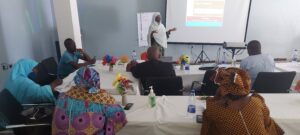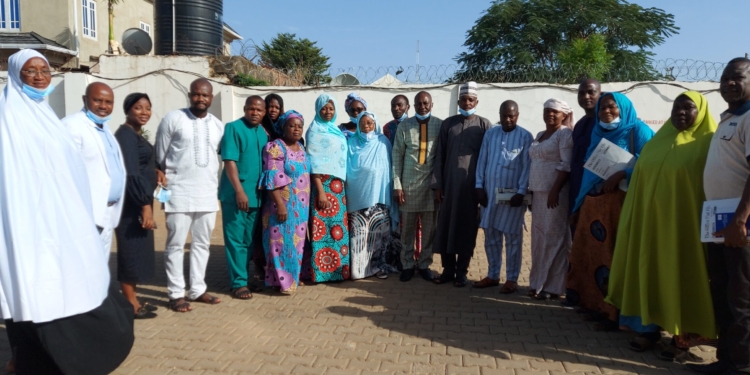The inclusion and representation of persons with disabilities, women and youth have been identified as a major process to amplify voices for peaceful coexistence in communities across Nigeria and beyond.
This was disclosed by stakeholders at the Action Group meeting of the ‘Search for Common Ground Nigeria’s Advancing Religious Tolerance Project’ which held in Minna, Niger State.
The stakeholders including religious leaders, legal practitioners and civil society organizations stressed that religious leaders and actors can play particular influential roles, as they bear the potential to influence the behavior of their followers.
At the end of the Action Group meeting, the stakeholders developed a Plan of Action to strengthen engagement between key stakeholders.
The plan, according to the stakeholders, will deepen understanding and advance conversations and responses on Religious Freedom or Belief (FORB) as a powerful force for interfaith understanding and peace as well as to promote tolerance.
The plan will also address interfaith conflict by working with religious communities to collaborate in developing initiatives that curb violent narratives tied to religious conflict in Nigeria, through positive public messages of religious pluralism and respect of human rights.
Fatima Madaki, Project Manager Search for Common Ground said the Plan of Action is intended to be a programmatic tool which “aims at informing and advising the work of religious leaders and actors, as well as other relevant players including state and religious institutions.
“Secular and religious civil society organizations, new and traditional media, academia and education institutions, as well as regional and international organizations to provide options and recommendations for ways in which they can contribute to preventing incitement to violence and promote peaceful coexistence.”

Madaki also explained that the Plan of Action is founded on human rights principles, in particular the right to freedom of expression and opinion, freedom of religion and belief and the right of peaceful assembly.
“Specification to prevent Discrimination, hate speech and incitement of violence through the media; Prevent the spread of fake news and its tendency to incite reprisal attacks
“Enhance sensitization and awareness creation programs, foster interfaith and intra-faith dialogue and exchange visits and strengthen collaboration with traditional and new media
“Inclusion and representation of persons with with disabilities, women and youth to amplify moderate voices for peaceful coexistence; Develop collaborative initiatives for skill acquisition, intergenerational dialogue and media engagement,” she added.

